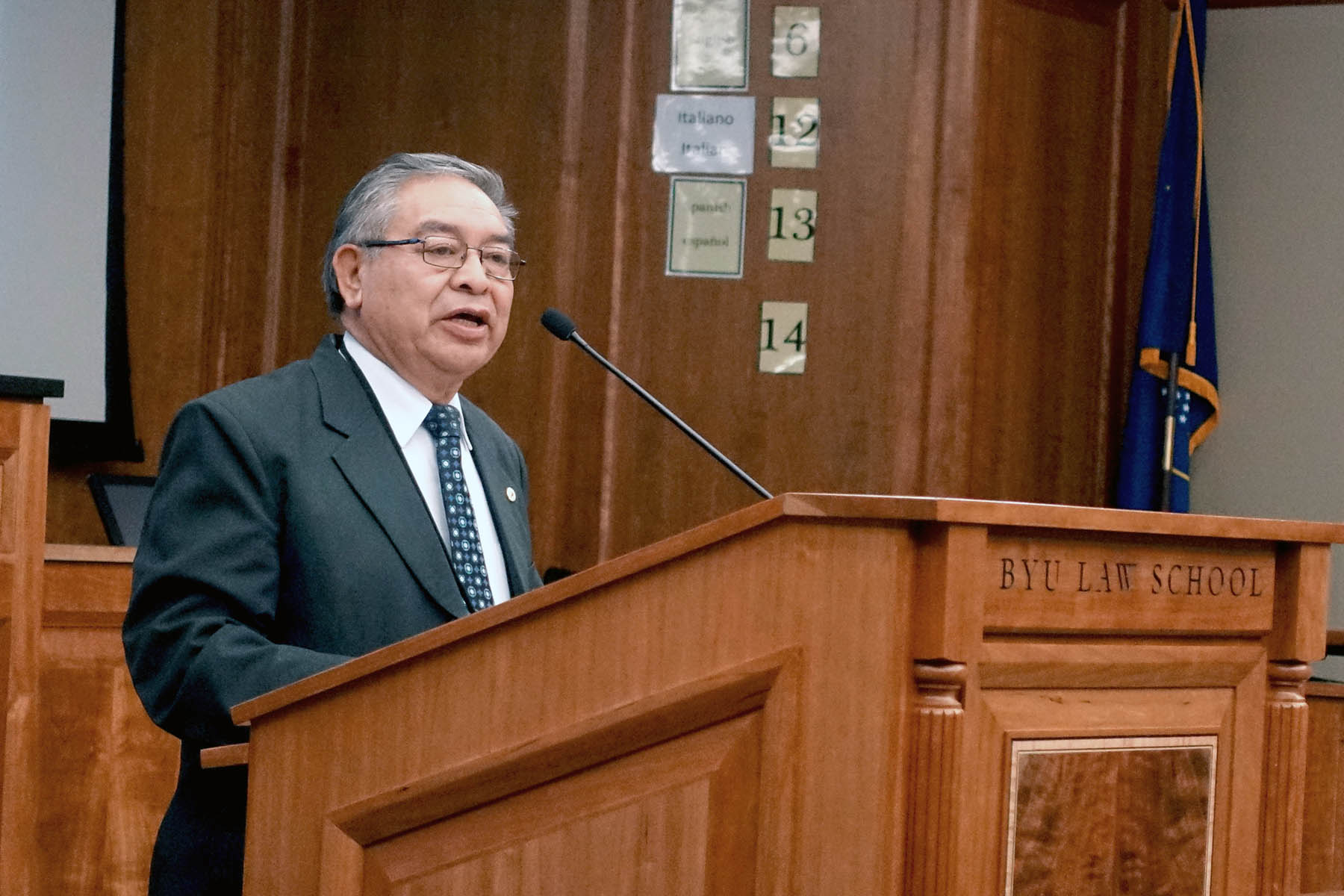Symposium 2016: Central America

by Jeremy Driggs
The session on Central America was moderated by Mark Wood, International Fellow, International Center for Law and Religion Studies. Panelists were César Osmundo Vásquez Miranda, President of the Evangelical Alliance of Guatemala, and Juan Alfonso Fuentes Soria, Former Vice President of Guatemala from 2015-2016, and Secretary General of the Central American University High Council.
César Vásquez Miranda spoke about how religion is being oppressed in all spheres of public life. A cloud of darkness blocks and impedes the army of religious freedom. This, according to him, is secularism, humanism, and atheism. These forces are testing religious people’s convictions. Every religion has a holy book which provides a base of strength from which these forces can be combated. God has given us the freedom to exercise our freedom of religion. Religion unlocks the deepest dignity of human beings. We need to focus on families, life, and our values. If we do not do this, our religious freedom will have been wasted. Gaining the world is not worth losing our souls. We cannot lose the family and the values of marriage. As religious minded people, we must spread in society, both with like-minded people and people of other mindsets. Society is attempting to segment and divide something that God created and set apart. The state is caving to the demands of the minority, and denies religious rights to the majority. We must begin to act.
Juan Fuentes Soria began by sharing a quick analysis of the region. Central America is one of the world’s most violent areas. Health is poor and many people die in hospitals. He said that corruption, repression, and speculation make working productively difficult. He advocates for an increase in diplomacy. Churches need a better link to the reality of the country. They need to help the national conscience and help facilitate education for the public.
He went on to discuss the indigenous populations of Guatemala feeling that nothing of substance has been done.
Finally, he had some challenges for universities in Central America. They need to establish a dialogue between all aspects of society. They also need to protect the ecological system.